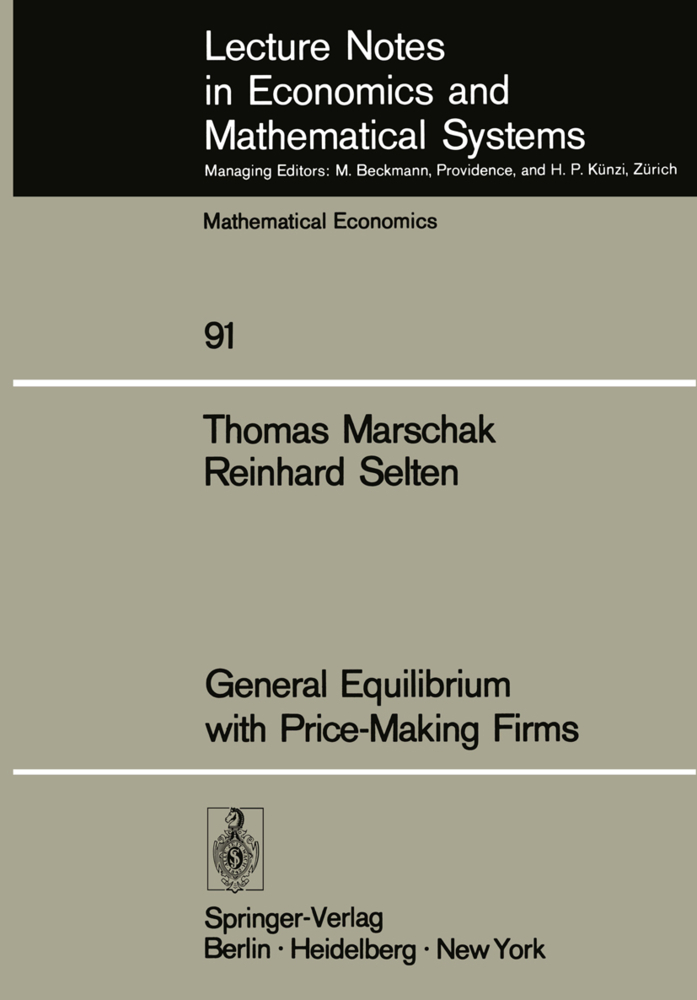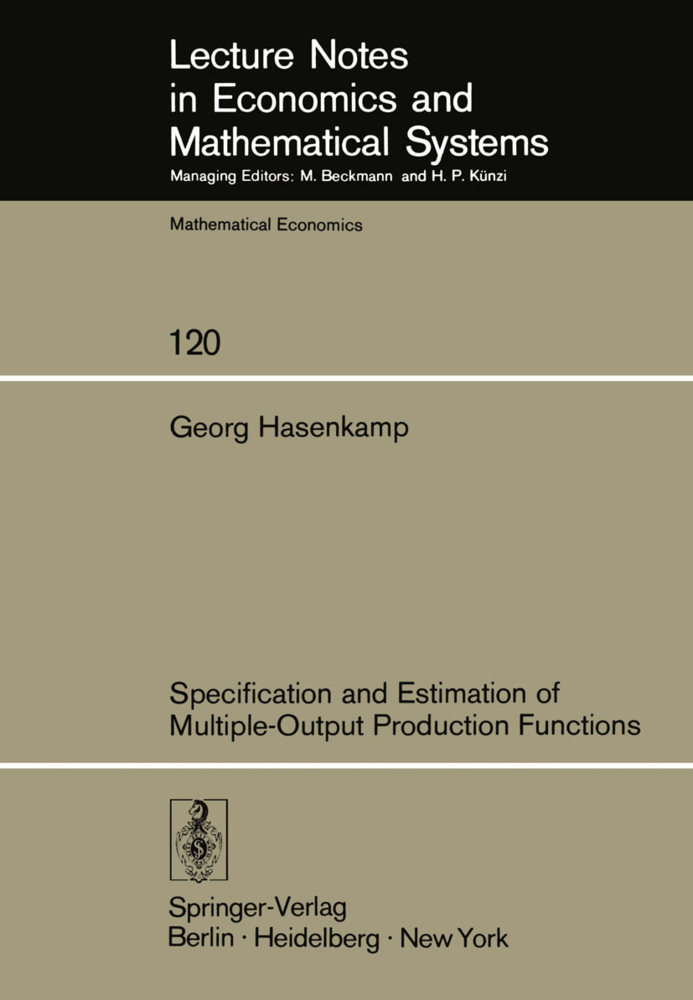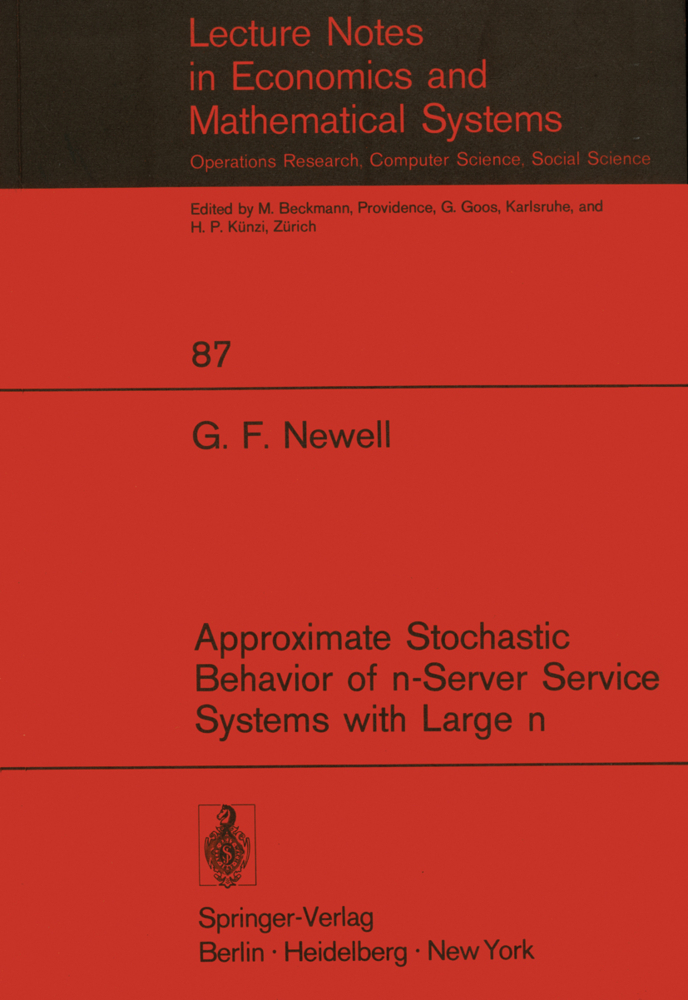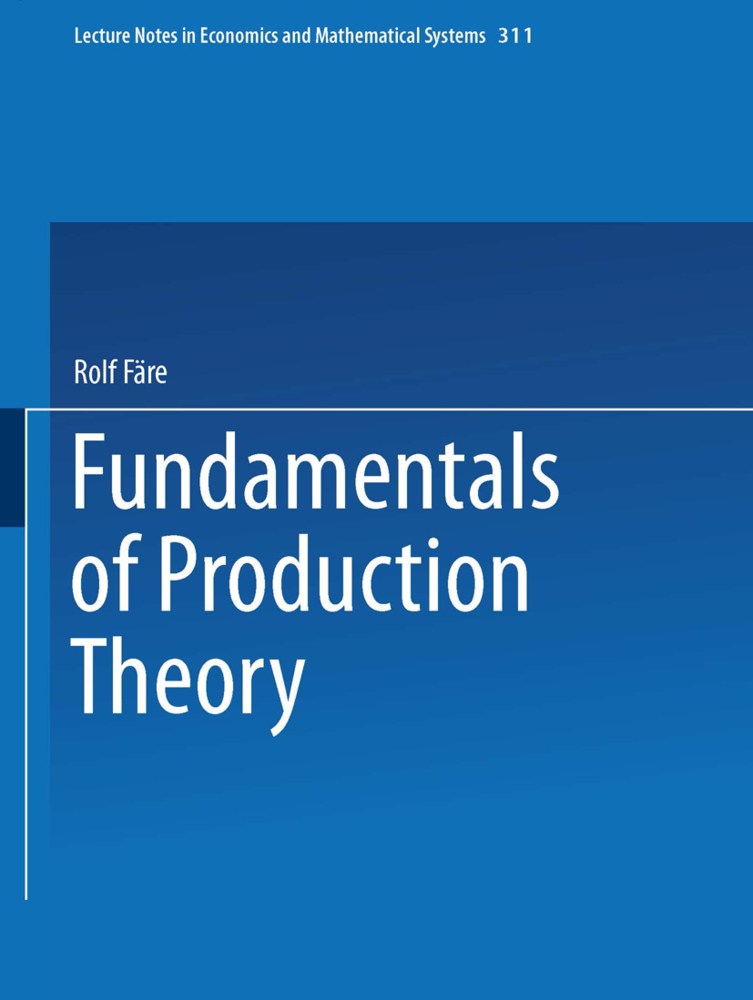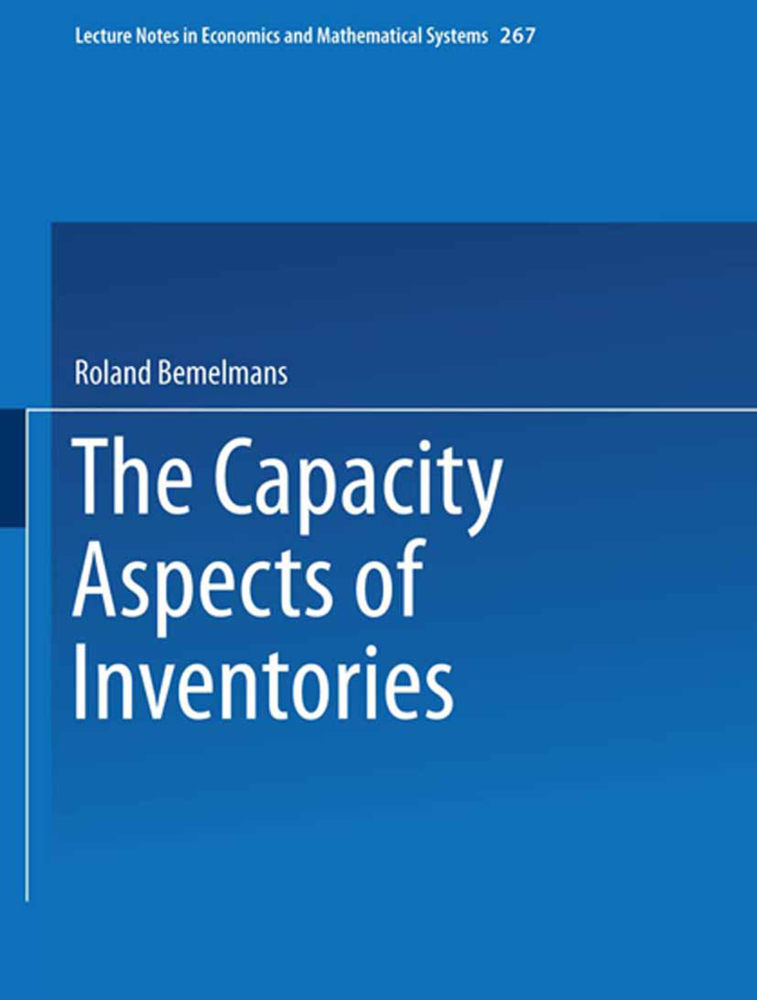General Equilibrium with Price-Making Firms
General Equilibrium with Price-Making Firms
Motivation. That elegant fiction the competitive equilibrium seems still to dominate the frontiers of theoretical microeconomics. We may think of it in a general way as a state of affairs wherein economic agents, responding "rationally" to annoWlced prices, make choices which are consistent and feasible. The prices may also be described as "taken": for one reason or another the agents who respond to them consider them as given. The existence of such a state, its optimality, its robustness against free bargaining among agents when there are many of them, its Wliqueness, its stability when price displacements evoke specified adjustments--all these issues have been studied, and continue to be studied in a variety of settings. Slowly the equilibrium investigated begins to incorporate public goods, externalities of certain kinds, differences in agents' information, and infinitely many time periods. The appeal of such results need not be belabored: the equilibrium studied may sustain an optimal resource allocation, and when it does it sus tains it in a manner that appears to be informationally efficient and to accord well with individual incentives. Therefore it is important to extend the circumstances under which an equilibrium exists, under which it sustains opti mality, and under which it survives displacements as well as free bargaining among agents.
Literature
The present study
Notational conventions
II. General Equilibrium with a Monopolistic Sector: Equilibria of Traditional Type
1. "True" General Equilibria of Traditional Type
2. General Equilibria of Traditional Type When Monopolists Do Not Sell to Each Other
3. Monopolists Selling to Each Other
4. Concluding Remarks
List of Assumptions
III. A New Approach to Monopolistic and Other Noncooperative Equilibria: The Theory of "Convolutions" (Rationality-Preserving Response Functions)
1. Basic Concepts
2. Examples
3. A Necessary Condition for Existence of a Convolution
4. "Weak" Convolutions and the Sufficiency of the Necessary Conditions
5. Other Variants
6. Concluding Remarks
IV. Oligopolistic Economies as Games of Limited Information: Description of Equilibria
1. Introduction
2. A Small Oligopolistic Economy with Set-Up Costs and Nondecreasing Returns
3. A Large Oligopolistic Economy with Each Firm Visualizing a Small Economy: A Concrete Version and an Abstract Generalization
V. Oligopolistic Economies as Games of Limited Information: Existence of Equilibria
1. An Essential Existence Proposition
2. Notation and a Mapping Argument for the Basic Existence Proposition
3. The Quantities of Goods Required to Produce a Given Final-Good Vector: Existence and Continuity of the Functions g, ?, $${\overline f _W}$$
4. Zero-Profit Prices for Intermediate Goods: Existence and Continuity of the Function µ
5. The Intersection Point of a ?-Curve and the Offer Surface: Existence and Continuity of the Function $$\ell $$
6. Summary: the Basic Existence Theorem
7. Implications of the Basic Existence Theorem for the Existence of Oligopolistic General Equilibria
8. OtherEquilibria
9. A Numerical Example of Oligopolistic General Equilibrium
VI. Conclusion
References.
I. Introduction
MotivationLiterature
The present study
Notational conventions
II. General Equilibrium with a Monopolistic Sector: Equilibria of Traditional Type
1. "True" General Equilibria of Traditional Type
2. General Equilibria of Traditional Type When Monopolists Do Not Sell to Each Other
3. Monopolists Selling to Each Other
4. Concluding Remarks
List of Assumptions
III. A New Approach to Monopolistic and Other Noncooperative Equilibria: The Theory of "Convolutions" (Rationality-Preserving Response Functions)
1. Basic Concepts
2. Examples
3. A Necessary Condition for Existence of a Convolution
4. "Weak" Convolutions and the Sufficiency of the Necessary Conditions
5. Other Variants
6. Concluding Remarks
IV. Oligopolistic Economies as Games of Limited Information: Description of Equilibria
1. Introduction
2. A Small Oligopolistic Economy with Set-Up Costs and Nondecreasing Returns
3. A Large Oligopolistic Economy with Each Firm Visualizing a Small Economy: A Concrete Version and an Abstract Generalization
V. Oligopolistic Economies as Games of Limited Information: Existence of Equilibria
1. An Essential Existence Proposition
2. Notation and a Mapping Argument for the Basic Existence Proposition
3. The Quantities of Goods Required to Produce a Given Final-Good Vector: Existence and Continuity of the Functions g, ?, $${\overline f _W}$$
4. Zero-Profit Prices for Intermediate Goods: Existence and Continuity of the Function µ
5. The Intersection Point of a ?-Curve and the Offer Surface: Existence and Continuity of the Function $$\ell $$
6. Summary: the Basic Existence Theorem
7. Implications of the Basic Existence Theorem for the Existence of Oligopolistic General Equilibria
8. OtherEquilibria
9. A Numerical Example of Oligopolistic General Equilibrium
VI. Conclusion
References.
| ISBN | 9783540066248 |
|---|---|
| Artikelnummer | 9783540066248 |
| Medientyp | Buch |
| Copyrightjahr | 1974 |
| Verlag | Springer, Berlin |
| Umfang | 247 Seiten |
| Abbildungen | XI, 247 p. |
| Sprache | Englisch |

